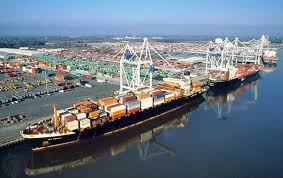A report of Transparency International Bangladesh (TIB) has presented an alarming picture of corruption at the Mongla sea port in Bagerhat and at the Burimari land port in Lalmonirhat. According to TIB’s study, along with all sorts of other corruption, a hefty sum has to be paid per truck at the Burimari land port. This is taken in the name of the truck drivers’ union.
The rampant corruption at these ports is just the tip of the iceberg. Every port is said to be submerged in the mire of corruption. According to media reports on Tuesday, Indian traders have stopped their imports and exports in protest of having to pay additional amounts at the Benapole land port. They have to pay an extra Tk 1700 as ‘baksheesh’ or ‘gratuity’ to unload each truck. The businesspersons of both countries have held meetings in the regard, but the matter remains unresolved. This is a matter of shame for the country as a whole.
According to TIB’s study, the customs house and port authorities at Mongla port earn around Tk 200 million extra per year through underhand means. Through a survey of the clients, it was estimated that in the 2016-17 fiscal, the Mongla port customs officers made Tk 156.9 million on the side. The port authorities made Tk 46.1 million in a similarly corrupt manner. The businessmen are totally fed up with this unabated corruption by the dishonest officials and their agents. No service is provided without bribes at the Mongla sea port and the Burimari land port. TIB says this applies to every other port in the country.
Some among those in the government write this off as ‘speed money’ and do not pay much heed to these misdeeds. This attitude simply encourages the dishonest officials to continue in their corruption. ‘Speed money’ does exist in developed countries, but it is not forced or obligatory. In Bangladesh, there is no alternative but to pay the additional amount if service is to be availed.
A few years ago there had been a slogan on the walls: ‘Holding up files for money is as much a crime as holding up with a gun.” Now corruption is no longer restricted just to holding up files. Trucks are held up and bribes are extracted. This is unlawful but the traders comply in order to get their goods through. But when the bribes and corruption exceed all limits, they are forced to call a strike.
There have been protests in the past about corruption at the ports. There have been strikes. Many corrupt officials have even been caught red-handed, but nothing has ever been heard of any action being taken against them. The corruption is almost institutionalised. The bribes are shared among the officials at all levels, from top to bottom. Unless this unscrupulous syndicate is broken, corruption cannot be stopped, not even lessened.
In order to tackle this problem of corruption, TIB has recommended that a one-stop service be put in place for customs duty, physical checking, release of goods, and the arrival and departure of ships. Also, it recommends that automation and a paperless office be set up. The authorities should take these recommendations into cognizance. If activities are held up for one day at the port through which 80 per cent of imports and exports by land take place, not only do the businessmen face losses, but this serves a blow to the overall economy of the country as well.
The government is so adamant to establish a digital Bangladesh, so why is such technology not given priority at the ports?










